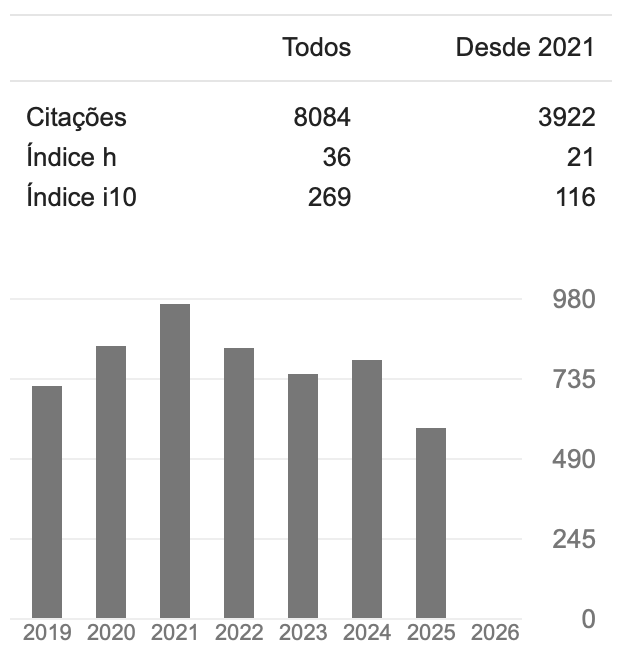Occurrence of night-eating syndrome and feed compulsive disorder in nutrition students
DOI:
https://doi.org/10.17765/1983-1870.2017v10n1p15-23Keywords:
Binge-Eating Disorder, Students, Feed disordersAbstract
Occurrence of night-eating syndrome and feed compulsive disorder in students of the Nutrition Course is analyzed in current transversal and analytic study at a higher education institute in Petrolina PE Brazil. Three questionnaires were applied, namely, a questionnaires on habits in night-eating, compulsive ingestion scale and the Three-factor eating questionnaire. Eighty-one students, males and females, mostly the latter, were evaluated. There was no significant association between night-eating syndrome or feed compulsive disorder for the variables gender and schooling. In the case of behavioral variables, emotional feeding was the factor which was most related to lack of control in feeding, whilst cognitive restriction scantily contributed towards the worsening of uncontrolled feeding. Studies on feeding disorders are important for an adequate intervention to reduce occurrence in NES and feeding compulsive disorder.Downloads
References
BERNARDI, F. et al. Transtornos alimentares e padrão circadiano alimentar: uma revisão. Rev. psiquiatr., Rio Grande do Sul, v. 209, n. 31, p. 3, 2009.
CALUGI, S et al. Night eating syndrome in class II–III obesity: metabolic and psychopathological features. Int J Obes., v. 33, n. 8, p. 899-904, 2009.
CLEATOR, J.et al. Night eating syndrome: implications for severe obesity. Nutr Diabetes., v. 2, n. 9, 2012.
COLLES, S. L.et al. Night eating syndrome and nocturnal snacking: association with obesity, binge eating and psychological distress. Int J Obes.,v. 31, n. 11, p. 1722-1730, 2007.
COSTA, M. B. et al. Diferenças na percepção da imagem corporal, no comportamento alimentar e no estado nutricional de universitárias das áreas de saúde e humanas. Rev Psiquiatr Rio Gd Sul.,v. 31, n. 3, p. 192-196, 2009.
DUARTE, F. M. et al. Alimentação fora do domicílio de universitários de alguns cursos da área da saúde de uma instituição privada. O Mundo da Saúde., v. 37, n. 3, p. 288-298, 2013.
FISCHER, S. et al. Night eating syndrome in young adults: Delineation from other eating disorders and clinical significance. J Psychiatry Research.,v. 200, n. 2, p. 494-501, 2012.
FREITAS, S. et al. Tradução e adaptação para o português da Escala de Compulsão Alimentar Periódica. Rev Bras Psiquiatr.,v. 23, n. 4, p. 215-220, 2001.
GALLANT, A. R. et al. Etiology and Pathophysiology the night-eating syndrome and obesity. Obes Rev., v. 13, n. 6, p. 528-536, 2012.
HARB, A. B. C. et al. Síndrome do comer noturno: aspectos conceituais, epidemiológicos, diagnósticos e terapêuticos. Rev Nutr PUCCAMP., Campinas, v. 23, n.1, p. 127-136, 2010.
HARB, A. B. C. et al. Tradução e adaptação da versão brasileira do Night Eating Questionnaire Translation and adaptation of the Brazilian version of the Night Eating Questionnaire. Cad Saúde Publica., v. 24, n. 6, p. 1368-1376, 2008.
MARQUES, S. I. P. Perturbação de ingestão compulsiva, alimentação emocional e síndrome do comer noturno: um estudo comparativo entre sujeitos com peso normal, excesso de peso e obesidade. 2013. 121f. Dissertação (Mestrado em Psicologia clínica) - Universidade da Beira Interior, Covilhão, 2013.
MILANO, W. et al. Night eating syndrome: an overview. J Pharm Pharmacol., London, v.64, n.1,p.2-10, 2012.
NATACCI. L. C.; JÚNIOR M. F. The three factor eating questionnaire - R21: translation and administration to Brazilian women. Rev Nutr., v. 24, n. 3, p. 383-394, 2011.
NOLAN, L. J.; GELIEBTER, A. Night eating is associated with emotional and external eating in college students. Eat Behav., v. 13, n. 3, p. 202-206, 2012.
OLIVERA, G. A. et al. A compulsão alimentar na recepção dos profissionais de saúde. Psicologia Hospitalar, v. 4, n. 2, p. 1-18, 2006.
PIVETTA, L. A.; GONÇALVES S. R. Compulsão alimentar e fatores associados em adolescentes de Cuiabá. Cad Saúde Publica., v. 26, n. 2, p. 337-346, 2010.
TAPADINHAS, A. R.; RIBEIRO, J. L. P.Ingestão compulsiva e gestão das emoções na obesidade. Psicologia, Saúde e Doenças., v. 9, supl.1, 2008.
VITOLO, M. R. Et al. Prevalência de compulsão alimentar entre universitárias de diferentes áreas de estudo. Rev. psiquiatr., Rio Grande do Sul, v.28, p.20-26, 2006.
ZIROLDO, D. F. et al. Prevalência da síndrome do comer noturno em universitárias. Saúde e Pesqui., v.4,n.3,p.401-406, 2011.
Downloads
Published
How to Cite
Issue
Section
License
A submissão de originais para a revista Saúde e Pesquisa implica na transferência da Carta Concessão de Direitos Autorais, pelos autores, dos direitos de publicação digital para a revista após serem informados do aceite de publicação.A Secretaria Editorial irá fornecer da um modelo de Carta de Concessão de Direitos Autorais, indicando o cumprimento integral de princípios éticos e legislação específica. Os direitos autorais dos artigos publicados nesta revista são de direito do autor, com direitos da revista sobre a primeira publicação. Os autores somente poderão utilizar os mesmos resultados em outras publicações, indicando claramente a revista Saúde e Pesquisa como o meio da publicação original. Em virtude de tratar-se de um periódico de acesso aberto, é permitido o uso gratuito dos artigos, principalmente em aplicações educacionais e científicas, desde que citada a fonte. A Saúde e Pesquisa adota a licença Creative Commons Attribution 4.0 International.
A revista se reserva o direito de efetuar, nos originais, alterações de ordem normativa, ortográfica e gramatical, com vistas a manter o padrão culto da língua e a credibilidade do veículo. Respeitará, no entanto, o estilo de escrever dos autores. Alterações, correções ou sugestões de ordem conceitual serão encaminhadas aos autores, quando necessário. Nesses casos, os artigos, depois de adequados, deverão ser submetidos a nova apreciação. As opiniões emitidas pelos autores dos artigos são de sua exclusiva responsabilidade.

















